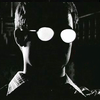View current page
...more recent posts
The Best Movies I've Seen This Year
Napoleon Dynamite (just catching up to this on DVD). In this movie set in what looks like a remote exurb of Denver, everyone seems to have a mild case of autism. Especially the eponymous teenaged hero, who has a weird and thoroughly convincing way of turning his head to one side and saying "Gosh!" (or "Uggh!", or "Idiot!") whenever something happens he doesn't like. His brother Kip, a bespectacled, epicine man in his 30s who sits on the couch a lot, is similarly disengaged from reality--or at least you think so until his chatroom "soul mate," a fantasy femme from the depths of R. Crumb's libido, shows up. Napoleon's best friend Pedro also seems among the walking dead, yet manages to spout good advice about girls fairly regularly. This movie is the good twin of Welcome to the Dollhouse. Just as dark, but with a veneer of wholesomeness that is not ironic, but rather more like the zombie-like state of denial most of us live in. The essential depravity of small town America ca. 2004 appears in occasional lecherous glances by authority figures towards the high school females, a brief but frightening scene inside a factory farm (chickens), and the simple tragedy of characters living in the past or going nowhere. But everything is kept light and funny. One has to fill in the blanks of the backward-looking, wised-up urbanity making the movie work.
(Bonus soundbites: Hear Napoleon say "Do the chickens have large talons?" and other lines here.)
The Layer Cake (still in theaters). Violent movie in the scruffy cockney gangster genre along with Lock, Stock, and Two Smoking Barrels, with a generous helping of Sexy Beast providing a slightly wistful, thoughtful mood. Many funny/macabre moments, and Michael Gambon never better as an aging criminal who's reached the upper echelons of respectable society but still talks like a stevedore when it suits him. He is ultra-cool. I liked the contrast between the lowlife, pill-pushing arena--especially disturbing was the bloodless efficiency of the ecstasy factory, with its Serbian assassin-for-hire a phone call away--and the "legitimate" capitalist world of exclusive country clubs, high rise developments, and book-filled libraries. These are not Tony Montanas flaunting their new wealth with 80s disco tackiness and a chained tiger by the pool, but smoothies who know how to eat, drink and decorate.
Henry Warwick emails the empyre list today, an online discussion forum where I am an invited but AWOL panelist, with some questions for the panelists, the majority of whom are also AWOL. I guess I could be accused of raiding empyre for content, but this is all public record--read on and see what you think. He writes:
I would like to see some greater sense of critical analysis in theI think I can handle this query, with reference to my work-in-progress "Wormy Animation":
discussion here regarding what is the artistic use of the blog vs.
"other" uses (online diaries, etc.) Also, a discussion of the
(un)conscious underpinnings of this art (dependence on fossil fuels,
resource extraction, geography as a class "formant", integration of
technology as a social object, etc.) and how these issues are expressed
or repressed in the works of the artists presented.
1. It's diaristic in that it's a pencil test of a longer work and I'm uploading frames as I make them. The GIF is art, though, not a diary. The finished GIF will be the finished art but by posting the pencil test I'm making it available for discussion as art (I don't expect a lot of discussion, to be honest, especially from the empyre-rs, who were speechless on 3/4 of the panelists' art).
2. The supposed excessive burning of fossil fuels vis a vis Internet use was a petroleum industry canard from the late '90s. In any case, I feel whatever I burn blogging is far, far outweighed by not driving a car.
3. "Wormy Animation" has much to say, I feel, on the subject of geography as a class "formant." (My best high school term paper lead sentence.) Growing up in Midland, Texas, having a college education, and living in NY for many years I am far more prone to make noodly art that displays, nay, revels in a bourgeois lack of concern for the oppressed. At the same time, the amorphous blobs, supposedly sublime objects beyond the reach of history, intertwine fecally as if yearning for the primal mud of the real, the invigorated soil of the peasant classes, which in Midland isn't so vigorous (it's in the desert) and depends heavily on pumping the aquifer dry. The underground water has much naturally occurring fluoride which is benign, healthy even, but has the unfortunate side effect of staining the locals' teeth yellow (including mine, a little bit--dentists have been trying to sell me on "bonding").
4. Integration of technology as a social object. Yeah.
5. "How these issues are expressed or repressed in the works of the artists presented." Well, as the artist I think I am very qualified to talk about what I am repressing in my work. See answers 2 and 3.

pencil test









Downing Street Memo... Downing Street Memo... Downing Street Memo...
The Downing Street Memo Story Won't DieThat's grounds for impeachment right there. Please link to this story, pass it around. The US press tried to bury it for Bush--they love him because he gives them scoops, and cute nicknames, and stuff.
By Jefferson Morley, washingtonpost.com Staff Writer, Tuesday, June 7, 2005; 9:18 AM
More than a month after its publication, the so-called Downing Street Memo remains among the top 10 most viewed articles on The Times of London site.
It's not hard to see why this remarkable document, published in The Times on May 1 (and reported in this column on May 3), continues to attract reader interest around the world, especially with British Prime Minister Tony Blair visiting Washington Tuesday.
The July 2002 memo, labeled "SECRET AND STRICTLY PERSONAL - UK EYES ONLY," reports the views of "C," code name for Richard Dearlove, the chief of British intelligence. Dearlove had just returned from a visit with Bush administration officials eight months before the war in Iraq began.
"Military action was now seen as inevitable," Dearlove told Blair and his senior defense policy advisers. "Bush wanted to remove Saddam, through military action, justified by the conjunction of terrorism and WMD. But the intelligence and facts were being fixed around the policy."
A separate secret briefing paper for the meeting said Britain and the United States had to "create" conditions to justify a war.






















